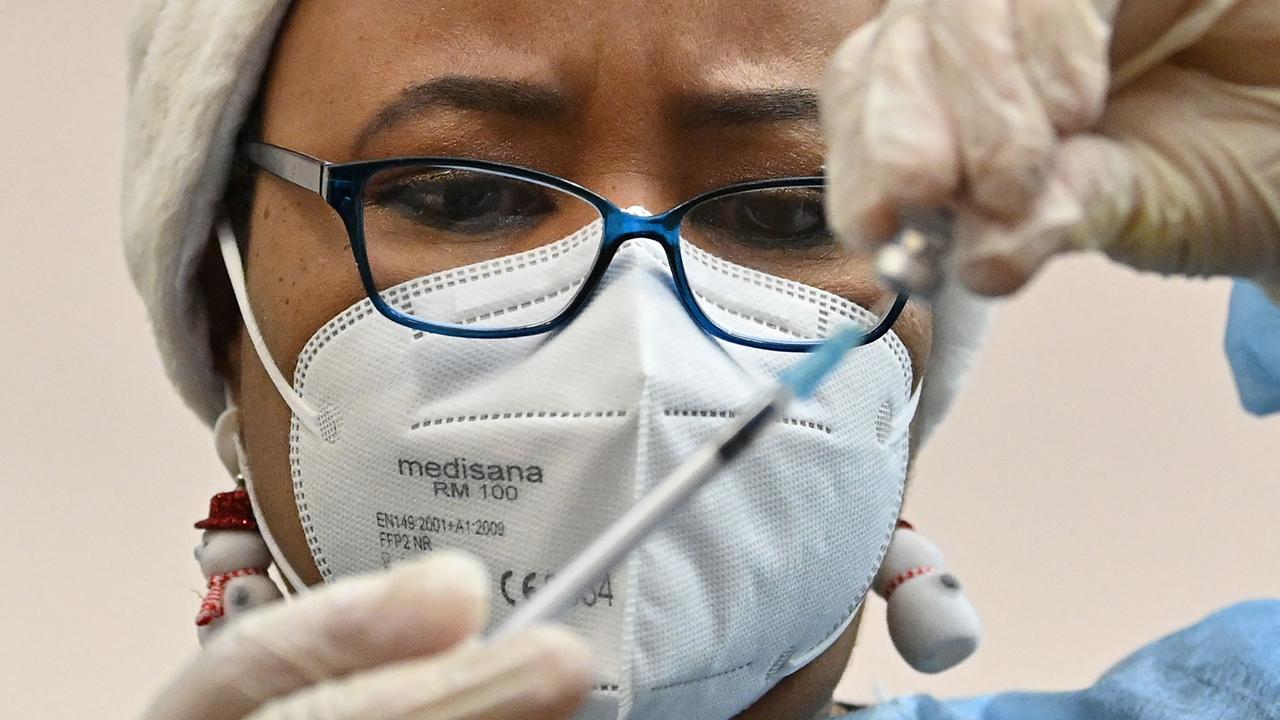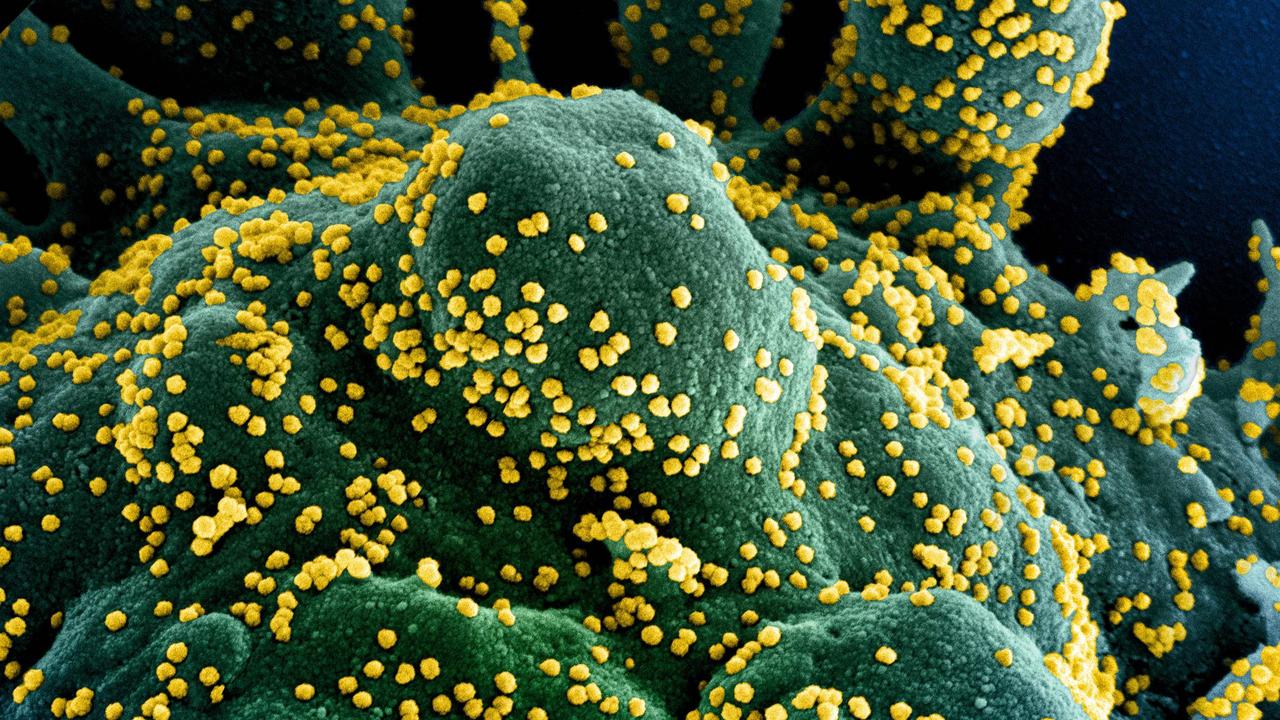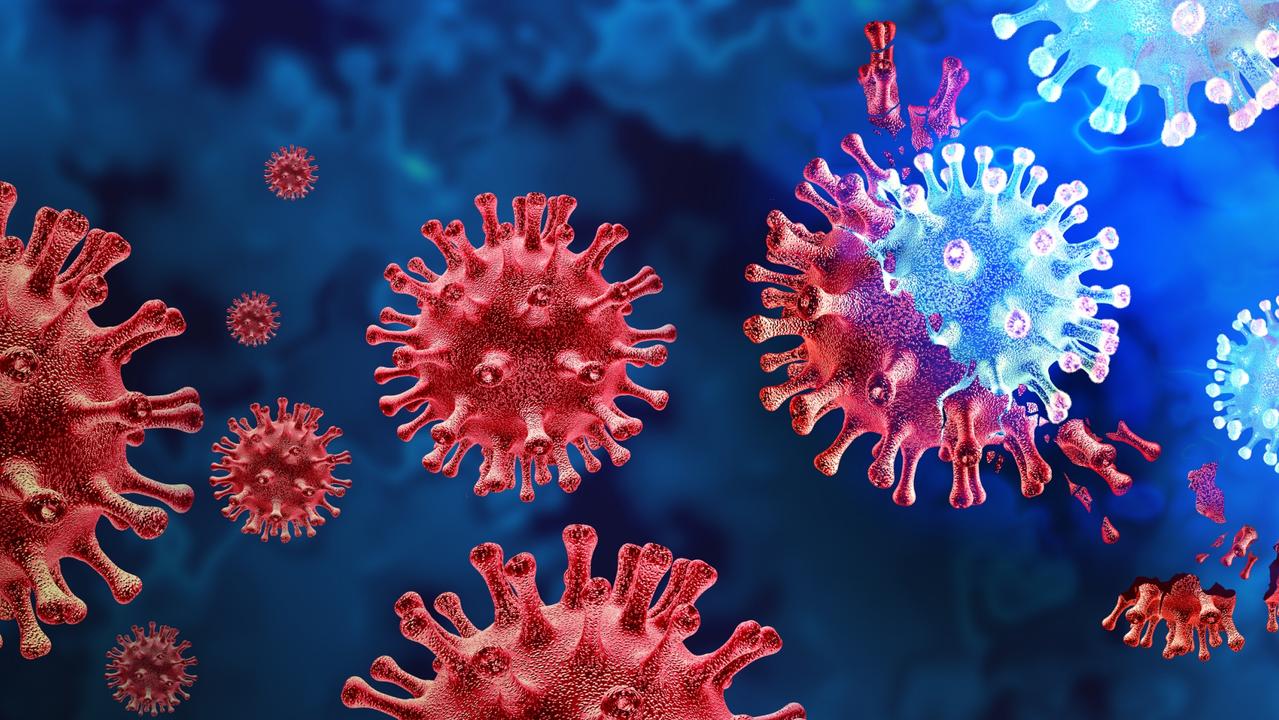Coronavirus: COVID-19 may spread quicker than officials first thought
A new study has suggested the coronavirus may spread a lot more swiftly than health experts originally thought.
The coronavirus might spread much more quickly than health officials initially believed, according to a new study.
Research from the Los Alamos National Laboratory found that people infected during the initial outbreak in Wuhan probably passed the virus to an average 5.7 others — more than double the 2 or 2.5 other people estimated by health officials and the World Health Organisation, the New York Post reports.
Patients sick with the seasonal flu, by comparison, will on average infect another 1.3 people.
If the numbers are accurate and applicable elsewhere, the coronavirus pandemic could only be stopped by a widespread vaccination or built immunity for 82 per cent of the population, according to the researchers, who reviewed Chinese data from the Centre for Disease Control and Prevention (CDC), including mobile phone data that tracked the movement of patients leaving Wuhan.
RELATED: Follow the latest coronavirus updates

“How contagious SARS-CoV-2 (the new coronavirus) is in other countries remains to be seen,” the researchers wrote in their study published in the Emerging Infectious Diseases journal.
“Given the rapid rate of spread as seen in current outbreaks in Europe, we need to be aware of the difficulty of controlling SARS-CoV-2 once it establishes sustained human-to-human transmission in a new population.”
The passing of the disease can be slowed, though, through the use of quarantines and social distancing, the scientists said, pointing to successes with outbreaks in South Korea, Hong Kong and Singapore, among others.
“Our results suggest that a combination of control measures, including early and active surveillance, quarantine, and especially strong social distancing efforts, are needed to slow down or stop the spread of the virus,” the team said.
“If these measures are not implemented early and strongly, the virus has the potential to spread rapidly and infect a large fraction of the population, overwhelming healthcare systems.”
Australia’s leaders believe social distancing measures have worked to “flatten the curve”, with the possibility of looser restrictions on the horizon for NSW.
Speaking at a press conference yesterday, Premier Gladys Berejiklian said she was treading carefully around getting people’s hopes up but also admitted the state’s coronavirus trends were looking good.
“We know that the restrictions are having an effect. But it takes us a couple of weeks to get the data through and for the health experts to be able to advise us,” she said.
“So I don’t want to raise expectations, but at the same time, there could be a chance, if the health experts deem it appropriate for us, to look at some relaxations.”
Ms Berejiklian said the restrictions would be reviewed monthly.
“At this stage, the restrictions are having a positive impact on the number. Not just on new cases but also on us being able to contact existing cases and making sure that people are isolated,” Ms Berejiklian said.
“But if the advice in a couple of weeks is that there might be a couple of aspects that we can tweak to provide relief to our citizens, well then, we’ll take that advice.
“But that comes with risk. And I need to be very upfront about at that. Every time you relax a restriction, more people will get sick. More people will die. And it’s a horrible situation to be in, but they’re the choices and we need to be upfront about that but can I please ask everybody to stick to the rules.”
This article originally appeared in the NY Post and is republished with permission.



